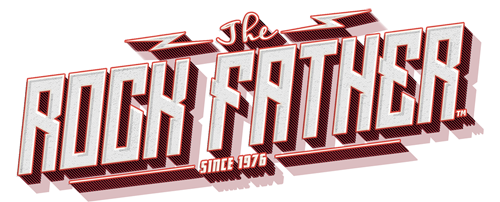The end of the year is fast approaching and many of us have still failed to complete our new year’s resolutions for 2019. But don’t fret: before the year is done, you can at least meet your financial goals.
While you might not be able to save up for that new car by the end of the year, you can definitely get your finances ready for the year to come. After all, establishing a plan now will help you start the new year off on the right foot. If you’re one of the many people who want to better their finances for 2020, try to meet these goals before the big ball hits zero.
Limit your holiday spending
Each holiday season, we fall victim to buying more than our budget can handle. Even though you want to gift your loved ones everything they deserve, it’s not worth digging yourself into a financial hole. Studies show that Millennials spend over $800 each month on unnecessary expenses, and that’s before we account for the holidays. If you spend so much that you’re struggling to pay rent, you need to take a second look at your finances.
The first step to limiting your holiday spending involves tallying up all of your bills and necessary expenses, including food and the occasional night out. Then, you have to subtract those numbers from your monthly salary. Whatever is leftover from that can be used for holiday goodies. Odds are, this number will be a lot less than you think, but it gives you a realistic budget to work with.
Remember that the best gifts come from the heart. It can be tempting to rack up credit card debt in the name of Christmas, but the loved ones in your life would rather see you flourish than go into debt over a simple gift. If you simply must buy a large gift, make sure it counts. Look for long-lasting options that are sure to give your loved one plenty of use, like home decor, cutlery, or new furniture. Estimates show that the average sofa will last about eight years before it needs to be replaced. If you spend big, don’t waste the purchase on superfluous items without any real value.
Check your credit report
Did you know each of the top three credit bureaus offer one free credit report each year? If you have checked your score with Experian, you can still determine how well your score is with Equifax or TransUnion before the year is done.
Becoming aware of your credit score is the first step to improving it. After all, bad credit could bar you from achieving a good mortgage rate, buying a new car, or taking out future loans for home projects. You might even get turned down by a rental application or a homeowners association. Since homebuyers have a 20% chance of buying a home that a part of an HOA, a good credit score could mean the difference between achieving your dream home or looking for other options. Luckily, talking to a financial advisor can help set you on the path for success. That, or you can sign up for auto-pay to help you never miss a payment again.
Get your taxes in order
April might seem lightyears away, but it’s much closer than you think. Additionally, the IRS can audit a business’s tax return within the first three years of filing. If you don’t keep track of these records, you might accidentally commit tax fraud without even realizing that you have done so. Avoid paying fees you didn’t know you had by keeping your tax information in a safe place, like a filing cabinet or easily accessible accordion binder.
Open that savings account
There’s no better time to open a savings account than yesterday. This helpful online piggy bank is one of the best ways to accumulate wealth over time. It also serves as a great way to keep you accountable for your spending. Once you establish a savings goal that works for your budget — say $50 per month — you can even choose to automatically transfer that amount from your checking account to your savings account without lifting a finger.
If you’re struggling to save throughout the month, you can also rely on mobile apps to help track your spending. You’d be surprised how much that daily cup of coffee costs when you actually make note of each purchase.
Establish an emergency fund
When you live on ends meat, it can be hard to account for any emergency costs that might arise. But you never know when a sudden hospitalization or bothersome home repair needs to be dealt with. When only 60% of people are covered by health insurance, the other 40% will have to struggle to pay medical bills. Whether you have insurance or not, an emergency fund is vital.
By establishing a well-stocked emergency fund, perhaps stored in a separate savings account, you can rest easy knowing that you have a cushion should any disaster arise.
While you’re not going to be able to shovel thousands of dollars into this fund before the end of the year, simply opening this fund is a healthy start.
Reign in wild bills
Now is the perfect time to weatherproof your home before heating and electric bills start to add up. With winter right around the corner, investing in a new thermostat and sealing your ducts should be at the top of your home improvement list. In fact, it’s estimated that simply sealing and insulating your heating ducts can improve your HVAC system’s efficiency by more than 20%. This simple fix will help keep your home more comfortable during the dreaded months of winter and keep money in your pocket for years to come. Don’t wait until cold weather strikes to work on money-saving home improvement projects.
Rely on these tips for a better new year
Why wait to start on a new year’s resolution? Before the end of the year arrives, follow these tips to help pad your wallet and get some peace of mind.




